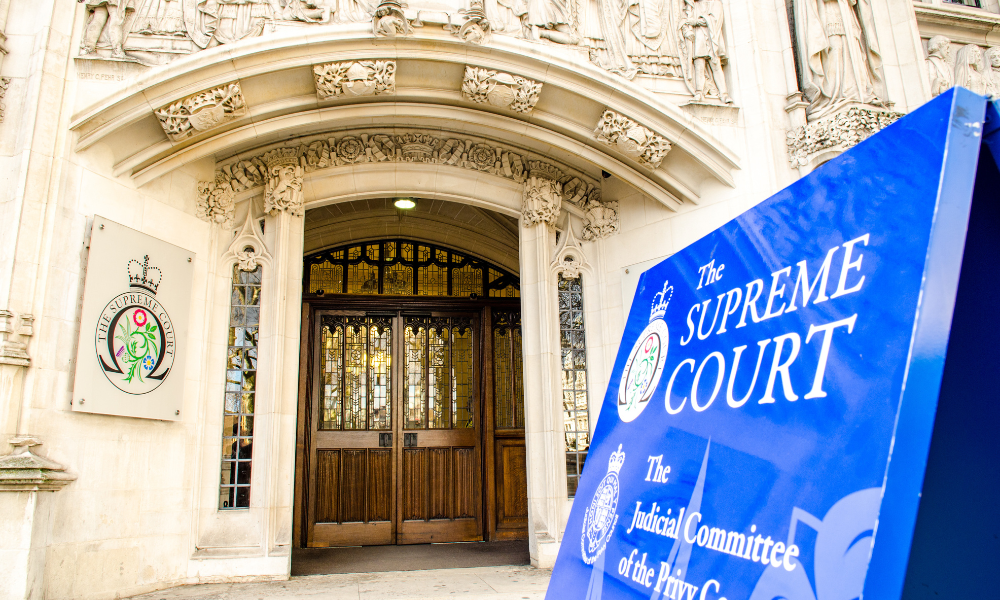
NZ trade mark expert discusses potential impact of the long-awaited UK judgement

If you are a trade mark practitioner or academic in New Zealand (or Australia), you will know (unless you’ve been blissfully incommunicado) that, on 13 November 2024, the UK Supreme Court issued its eagerly awaited judgment in the near decade-long fight between SkyKick UK and Sky (SkyKick).1
For readers unfamiliar with this litigation, the proceedings between SkyKick and Sky have drawn attention from trade mark practitioners and academics around the world because of one of the two central issues in the case: namely, whether the Sky parties2 had applied to register five ‘SKY’ trade marks (SKY Marks) in ‘bad faith’. More specifically, whether in applying to register the SKY Marks “across a great range of goods and services which they never had any intention to sell or provide, and yet they were prepared to deploy the full armoury presented by these SKY marks against a trader whose activities were not likely to cause confusion and did not amount to passing off”, the Sky parties acted, wholly or partially, in bad faith.
Agreeing with the trial judge, Arnold J, the UK Supreme Court answered this question in the affirmative, finding that the SKY Marks had been applied for, in part, in bad faith. Consequently, the specifications of those five registrations are to be amended.
The Supreme Court’s finding is significant because, as a plethora of international articles published on the court’s judgment have broadcast,3 it has firmly put owners of UK trade mark applications and registrations on notice that overly broad specifications of goods and/or services are vulnerable to attack either pre- or post-registration.
But what about owners of trade mark applications and registrations in New Zealand? Will SkyKick have any application here? Probably, yes; although its application will, as always, depend on the circumstances of each case.
There is an easier ground in New Zealand though on which to oppose a trade mark application or invalidate a trade mark registration whose specification is unjustified. Section 32(1) of the Trade Marks Act 2002 provides that ground, and, unlike the ‘bad faith’ ground of opposition or invalidity under section 17(2) of the Trade Marks Act, consideration of section 32(1) does not require exploration of a party’s subjective motivations for applying to register a trade mark: it simply requires sufficient evidence to rebut, objectively and on the balance of probabilities, the presumption of intention to use which is inherent with applying to register a trade mark.4
In the immediate aftermath of SkyKick, there may be a temptation for parties to readily plead ‘bad faith’ in opposition or invalidity proceedings instead of or in addition to ‘no intention to use’. Unless a party can be reasonably confident it will get the evidence it needs to sustain its allegation, however, perhaps caution should be exercised – if not at the pleading stage then at the pre-hearing stage of an opposition or invalidity proceeding when a party has to confirm to IPONZ if it intends, at the hearing, to pursue all the grounds of opposition or invalidity pleaded. Why? Because it is now well established that pursuing grounds of opposition or invalidity at a hearing which have little merit are likely to have adverse cost consequences, and while those costs consequences may be small in dollar terms, they may be significant in reputational terms for the party’s trade mark attorneys.
1. SkyKick UK Ltd and another v Sky Ltd and others [2024] UKSC 36.
2. Sky International AG and Sky Limited
3. For example, see: https://www.pinsentmasons.com/out-law/news/supreme-court-clarifies-bad-faith-trade-mark-law-sky-case; https://www.reddie.co.uk/2024/11/22/skykick-v-sky-supreme-court-clarifies-bad-faith/; https://www.hoganlovells.com/en/publications/no-more-pie-in-the-sky-uk-supreme-court-rules-over-broad-trade-marks-invalid-for-bad-faith-skykick-v-sky.
4. For a recent detailed consideration of section 32 of the Trade Marks Act 2002 before the Intellectual Property Office of New Zealand, see Swappoint AG v Expensify, Inc. [2024] NZIPOTM 32 (7 August 2024) at [26]-[29], [36]-[37], [51]-[65].